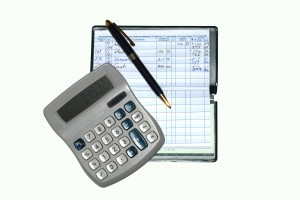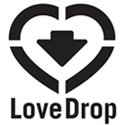This is a sponsored post from Check N Go.
 When you find yourself with a little extra cash at the end of the month, you may feel torn between paying off debts and saving for retirement. So, where should you be putting your excess funds? It’s like choosing between ice cream and brownies; there’s no simple answer when only both will do. You must consider your long-term goals before finding a solution.
When you find yourself with a little extra cash at the end of the month, you may feel torn between paying off debts and saving for retirement. So, where should you be putting your excess funds? It’s like choosing between ice cream and brownies; there’s no simple answer when only both will do. You must consider your long-term goals before finding a solution.
First, it’s important to lay out your financial and personal goals over time and plan according to those goals. Paying off mortgages, car loans, credit cards, and school loans can seem like insurmountable obstacles. Similarly, it takes considerable patience and discipline to build a retirement account.
Many financial experts recommend developing a plan based around long-term life goals. Steve Bucci, a debt advisor at Bankrate.com, says, “Your finances are the fuel that will help you realize your goals. These goals, in conjunction with your income, expenses and debt repayment, will give you a dynamic picture of how to best handle your resources.”[1] Such a plan should be flexible enough to accommodate your changing needs, yet fixed enough to support your loftiest goals. Bucci advises people to focus on building an emergency fund before considering debt repayment or retirement savings. An emergency fund can provide a safety net to cover basic expenses in case things go awry.
All things considered, it’s nice to be in a position where you can decide how to invest your excess money. After you develop a surefire strategy for financing life goals and set aside money for emergencies, you’ll want to start saving or eliminating debt—whichever fits more evenly with your immediate and long-term plans. In regards to debt repayment, you should pay down your debt with interest and taxes in mind. Your car loan will likely be the first thing you pay off, followed by student loans, and your mortgage(as long as you have a fixed-rate loan). Since mortgages involve a tax advantage, they should be last on your agenda.
If you’re not sure how to allocate your excess money, see a financial advisor at your local bank, consult with an online debt advisor, or visit the Financial Planning Association website. And, if you need a hand when faced with unexpected expenses, look into taking out installment loans to get back on track.
[1] Bucci, Steve. “A Nice Problem to Have: Save or Cut Debt? | Bankrate.com.” Mortgage Rates Credit Cards Refinance Home CD Rates by Bankrate.com. Bankrate.com, 2 June 2011. Web. 22 June 2011.
About Check N Go
Check N Go has been a leader in online payday loans and check cashing services for over 15 years, helping to build legitimacy to the consumer lending industry through their work with the Consumer Financial Services Association. Check N Go sets high standards for responsible and ethical lending in a rapidly expanding cash advance and payday loan business. Check N Go works tirelessly to provide consumers with auto title loans, check cashing, payday loans, and other financial needs.








